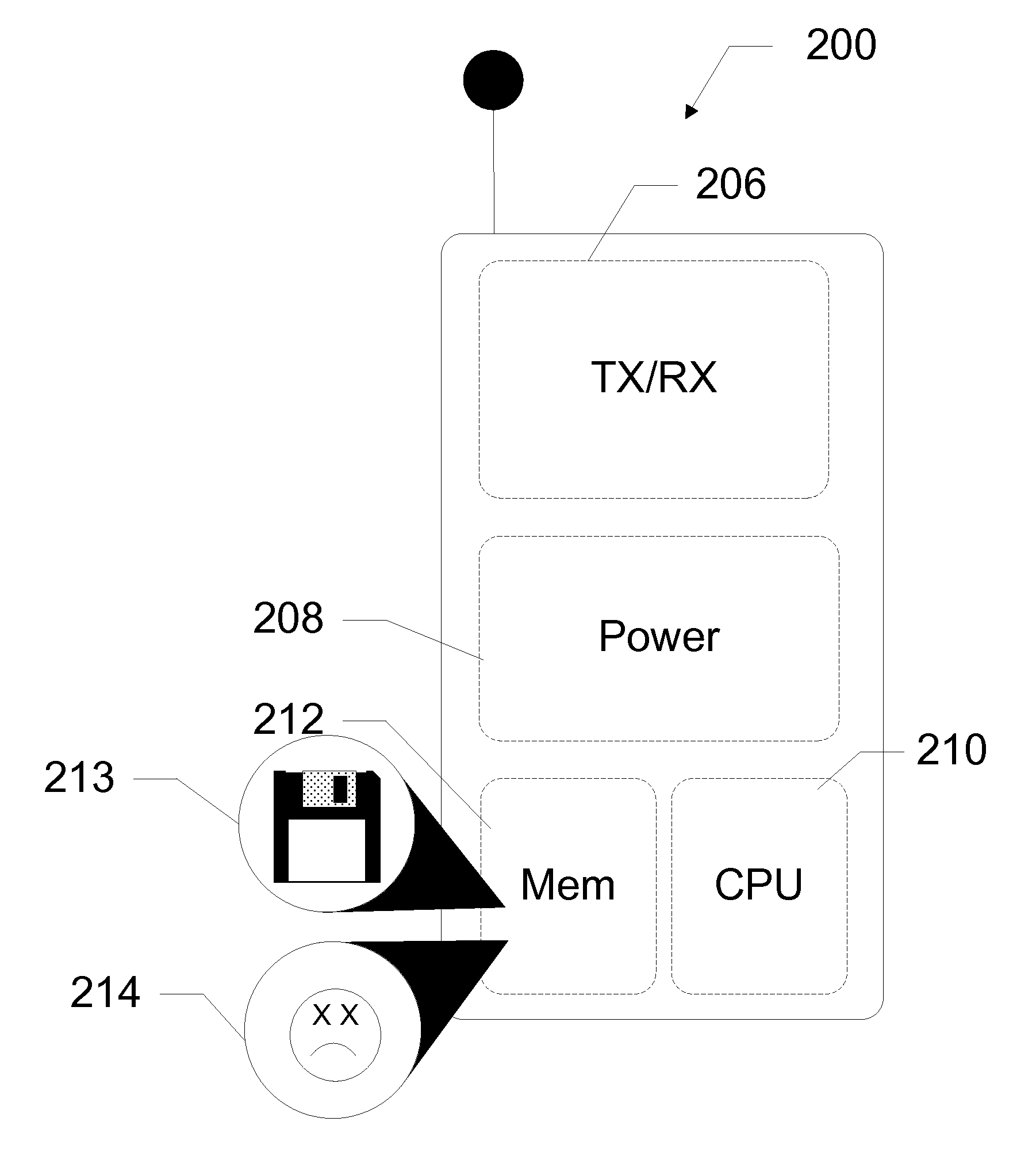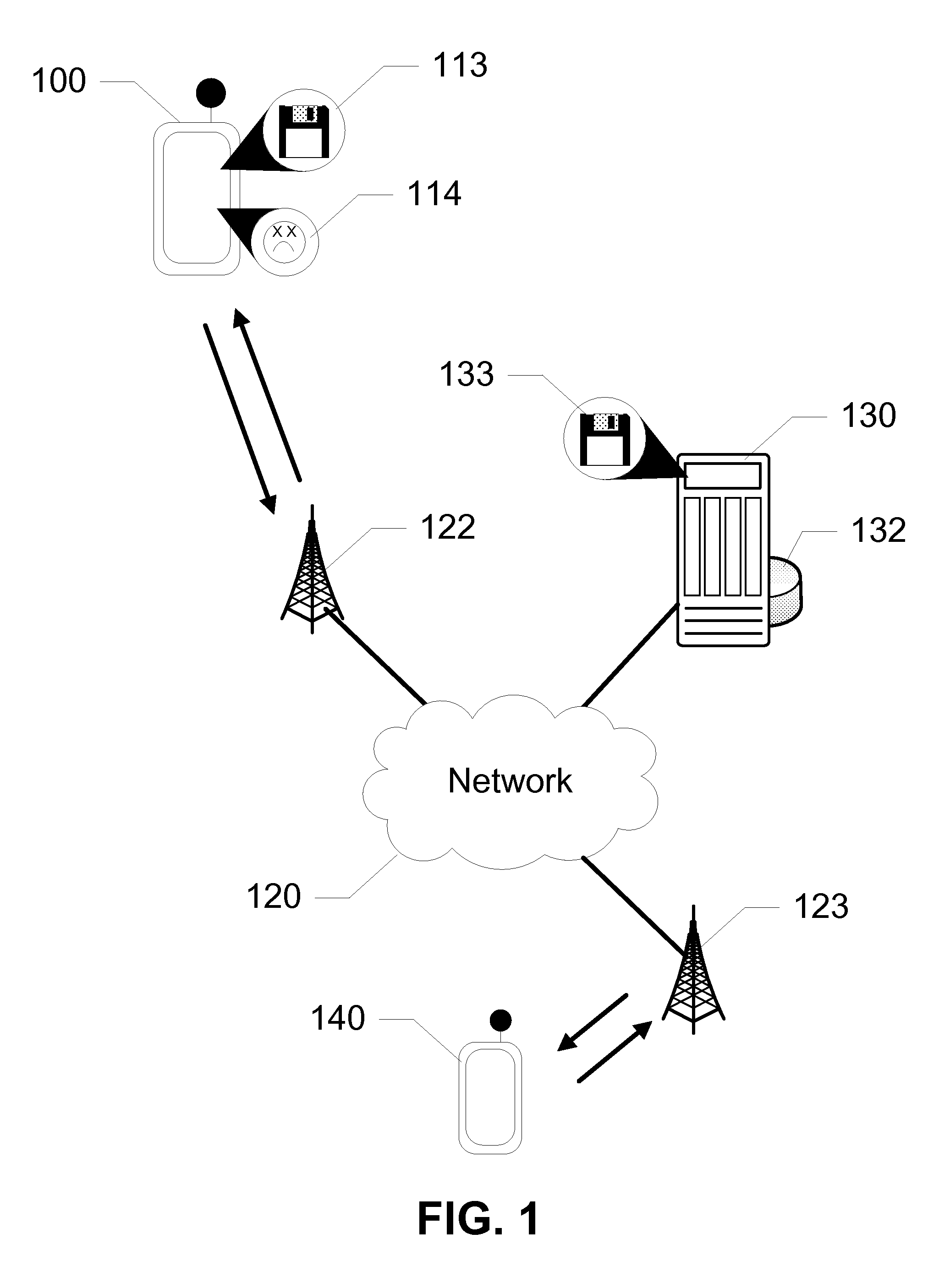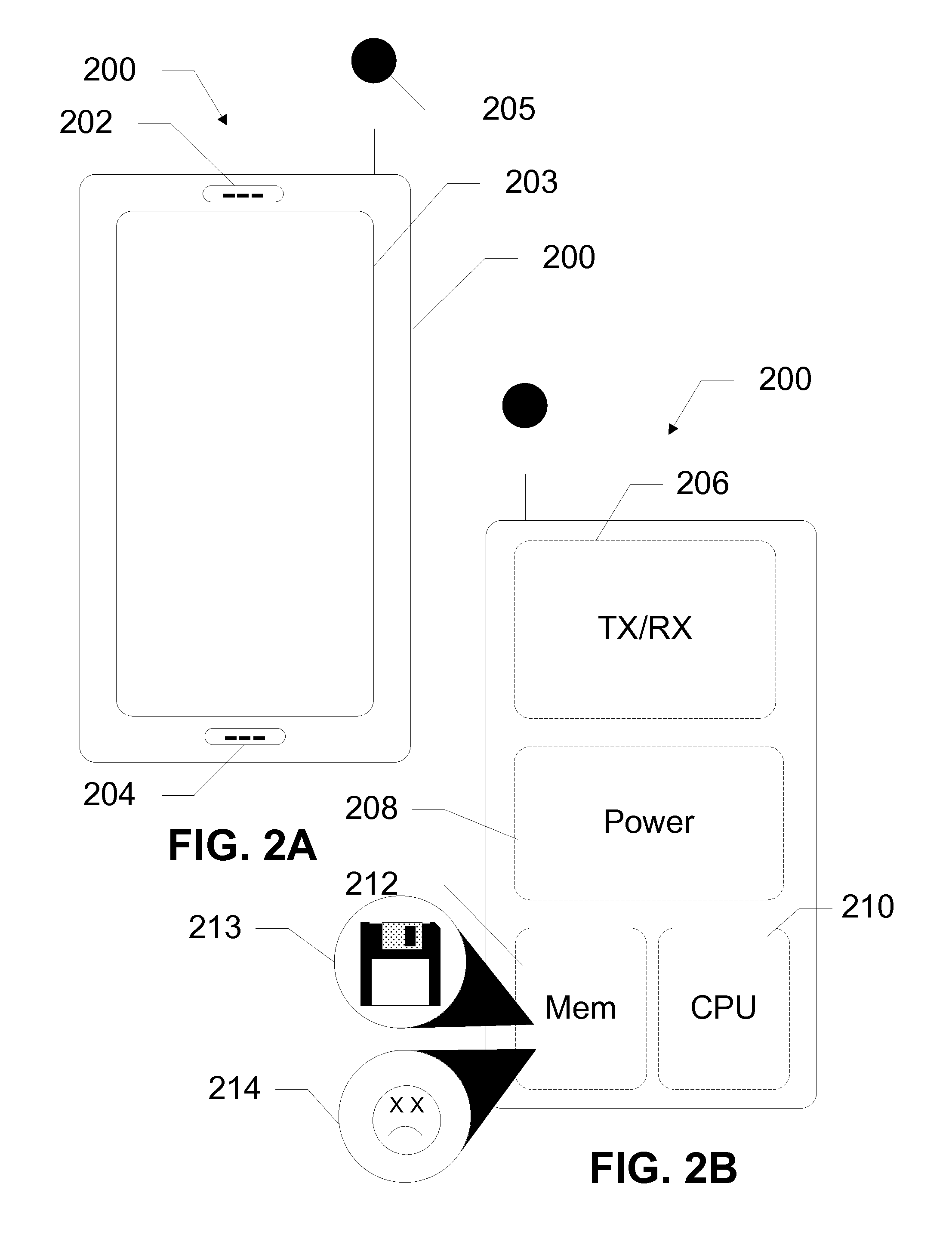Malware Detection for SMS/MMS Based Attacks
a malware and message technology, applied in the field of mobile devices, can solve the problems of difficult analysis and monitoring the status of the propagation, and difficulty in collecting signatures,
- Summary
- Abstract
- Description
- Claims
- Application Information
AI Technical Summary
Benefits of technology
Problems solved by technology
Method used
Image
Examples
Embodiment Construction
[0021]The present subject disclosure presents devices, systems, and methods utilizing lightweight agents on a mobile device to detect message-based attacks. In exemplary embodiments, the lightweight agents are included as contacts on the mobile device addressed to an agent server on a network. A malware onboard the mobile device, intending to propagate, unknowingly addresses the lightweight agents, sending messages to the agent server. The agent server analyzes the messages received from the mobile device of the deployed lightweight agents. The agent server then generates attack signatures for the malware. Using malware propagation models, the system estimates how many active mobile devices are infected as well as the total number of infected mobile devices in the network. By understanding the malware propagation, the service provider can decide how to deploy a mitigation plan on crucial locations. In further embodiments, the mechanism may be used to detect message and email attacks...
PUM
 Login to View More
Login to View More Abstract
Description
Claims
Application Information
 Login to View More
Login to View More - R&D
- Intellectual Property
- Life Sciences
- Materials
- Tech Scout
- Unparalleled Data Quality
- Higher Quality Content
- 60% Fewer Hallucinations
Browse by: Latest US Patents, China's latest patents, Technical Efficacy Thesaurus, Application Domain, Technology Topic, Popular Technical Reports.
© 2025 PatSnap. All rights reserved.Legal|Privacy policy|Modern Slavery Act Transparency Statement|Sitemap|About US| Contact US: help@patsnap.com



